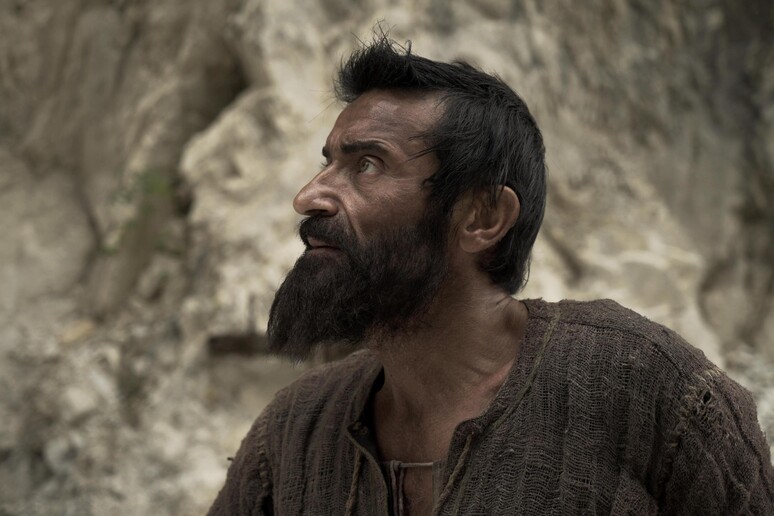A life-size Sistine Chapel
created by set designer Maurizio Sabatini is one of the scenes
in which the important Russian director Andrei Konchalovsky is
completing the shooting of "Il Peccato" ("The Sin").
The film is an emotional, visceral portrait of Renaissance
artist and sculptor Michelangelo, shot entirely in Italy and in
the Italian language.
The leading role is played by Alberto Testone, who in the
past acted in the theater and Pasolini's films and who was
chosen after a lengthy casting call in which the director tried
to find mainly non-professional actors.
"I wanted to recreate a very cruel era," the director told
ANSA, "very unyielding and dominated by censorship, through the
truth of people's faces."
The Russian-Italian co-production cost 15 million euros and
is expected to be released in the second half of 2018.
Producing it are the Andrei Konchalovsky Foundation for
Cinema and Performing Arts and the Russian culture ministry,
with the help of Russian entrepreneur and philanthropist Alisher
Usmanov and Jean Vigo Italia with RAI Cinema.
"What do I like about Michelangelo? His contradictions. He
liked money, like I do," he said, smiling, "but he was also sly
and knew how to behave with the powerful. I suppose I would call
him an 'innocent thief'."
A genius, the artist "was able to create masterpieces in a
time when there wasn't much freedom. Now, instead, we have a
great deal more freedom but far fewer masterpieces."
The director of 'Maria's Lovers' and 'Paradise' - who has won
many awards throughout his career include a Special Jury's Award
and two Silver Lions at the Venice Film Festival and turned 80
in August - prefers to "ask questions instead of giving
answers".
Understanding what the 'sin' is that the title refers to "is
connected with the viewers' perceptions. For me, it is probably
the sense of inferiority that many geniuses have - their sense
of guilt and inadequacy".
In the eyes of lead actor, Testone, "the title evokes a
general sense of sin more than referencing a specific one,
especially because Michelangelo committed them all in his life.
The film tells about the artist in his most difficult period, in
which he was crushed by pressure from the powerful and was not
able to keep his commitments. His fears, anxieties and struggle
for creative freedom are shown."
The film was shot between Tuscany and Lazio, from Monte
Altissimo to Castello Malaspina di Massa and Florence, Arezzo,
Montepulciano, Carrara, Bagno a Ripoli, Pienza, Monte San
Savino, Tarquinia, Caprarola and Rome.
One of the actors, Massimo De Francovich (who plays Pope
Julius II), said that "today it is difficult to shoot films that
are not purely entertainment, and this is a journey into the
soul. I think that it is important, however, to remember
geniuses like Michelangelo especially today for the younger
generations, who are living in times of short memories."
Testone, who began acting only a few years ago, prepared for
the role by "reading Vasari first of all, who in my opinion gave
the strongest portrait of Michelangelo. The many historians and
consultants who came onto the set helped as well. Day after day
this character slowly entered me. When they put makeup on me and
a beard, I see Michelangelo. And I learned to understand the
reasons behind his anger."
On being asked what the artist and Pasolini - who Testone
has also played - have in common, he said that "both were hungry
for life and willing to do anything for their ideas".
On Konchalovsky, he added that the Russian director was "as
if he was my father. He is an exceptional person with very clear
ideas. I never once saw him lose his temper. Every day with him
is a lesson for life for me."
ALL RIGHTS RESERVED © Copyright ANSA











